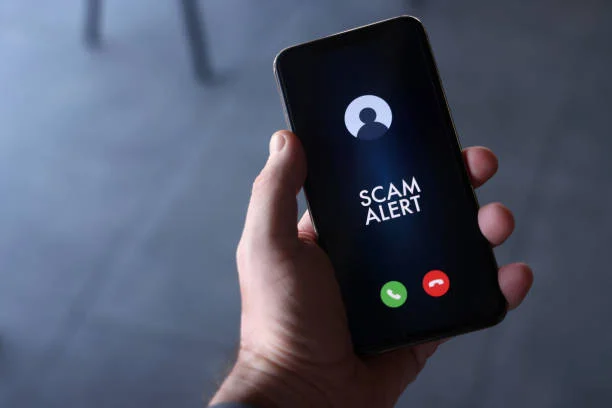Introduction to Scam Calls
Scam calls have become an unfortunate part of our daily lives. With each ring, there’s a chance that the voice on the other end is trying to trick you out of your hard-earned money or personal information. One number that has recently been making waves in scam reports is 1-346-230-1697. If you’ve received a call from this number, you’re not alone—and knowing what it means can help protect you and others from falling victim to these deceitful tactics.
These scams often employ sophisticated techniques designed to sound trustworthy, leaving many unsure about how to respond when they receive such calls. Let’s delve deeper into the specifics of the 1-346-230-1697 scam and arm ourselves with knowledge so we can better navigate this increasingly treacherous landscape of phone fraud.
The 1-346-230-1697 Scam: How it Works
The 1-346-230-1697 scam operates through a common tactic known as spoofing. Scammers use this method to make it appear that their call is coming from a legitimate number, often tricking unsuspecting recipients into answering.
Once you pick up the phone, you’ll hear a recorded message or sometimes even a live person claiming to be affiliated with well-known companies or government agencies. Their goal? To create urgency and persuade you to provide personal information.
They might claim you’ve won something or that there’s an issue requiring immediate attention. This psychological manipulation preys on fear and curiosity, making victims more likely to engage.
If you respond positively, they will ask for sensitive details like Social Security numbers or bank account information. It’s crucial to remember: legitimate organizations rarely ask for such data over the phone without prior notice.
Tips for Identifying Scam Calls
Scam calls can be tricky to spot, but knowing what to look for makes a difference. 1-346-230-1697 Start by paying attention to the caller ID. If it shows an unknown number or one that seems off, proceed with caution.
Next, listen carefully to the message. Scammers often use urgent language or threats, claiming you owe money or must act immediately. This is a red flag.
Another tip is to never share personal details over the phone unless you’re sure of who you’re talking to. Legitimate organizations won’t ask for sensitive information in this way.
Trust your instincts. If something feels wrong during the call, hang up and investigate further before responding again 1-346-230-1697.
What to Do if You Receive a Call from 1-346-230-1697
If you receive a call from 1-346-230-1697, don’t panic. Stay calm and assess the situation.
First, don’t engage with the caller. Scammers often use high-pressure tactics to get information or money from unsuspecting victims. Simply hang up if something feels off.
Next, block the number on your phone to prevent future calls. Most smartphones have features that allow you to easily silence unwanted callers.
Consider reporting the number to local authorities or scam-reporting websites like the FTC or Better Business Bureau. Your report could help others avoid falling victim.
Share your experience with friends and family. Educating those around you can create a more informed community ready to spot scams early on 1-346-230-1697.
Protecting Yourself From Scam Calls in the Future
To safeguard yourself from future scam calls, start by registering your number with the National Do Not Call Registry. This simple step reduces unsolicited telemarketing calls.
Consider using call-blocking apps or services that filter out suspicious numbers. Many smartphones come equipped with built-in features to identify and block potential scams.
Always verify unknown callers before sharing any personal information. If a caller claims to be from a reputable organization, hang up and contact them directly through official channels.
Educate yourself about common tactics scammers use. Awareness is your first line of defense against deception.
Trust your instincts. If something feels off during a call, it probably is. Hang up and report the incident if necessary; it might prevent others from falling victim too.
The Impact of Scam Calls on Society
Scam calls like those from 1-346-230-1697 have become a pervasive issue, infiltrating our daily lives. They not only waste time but also contribute to rising anxiety levels among individuals who fear becoming victims.
The financial toll is staggering. Millions of dollars are lost each year as unsuspecting targets fall for persuasive tactics employed by scammers. This theft doesn’t just affect individuals; it strains the economy and burdens law enforcement resources.
Moreover, these calls erode trust within communities. When people live in constant fear of being manipulated, they often withdraw from social interactions and essential services that require phone communication.
In an era where technology connects us more than ever, scam calls serve as a reminder of the vulnerabilities we face. The emotional impact can be significant—leading to feelings of helplessness and paranoia about legitimate communications.
Society grapples with the broader implications of these deceitful practices on mental health and community cohesion.
Conclusion
Scam calls have become a pervasive issue in our society, affecting countless individuals. The number 1-346-230-1697 is just one of many that scammers use to exploit unsuspecting victims. These scams can lead to financial loss and emotional distress.
Awareness is key when it comes to combatting these calls. By learning how they operate and staying vigilant, you can protect yourself from falling prey to such tactics. Always remember the importance of verifying information before acting on it.
As technology evolves, so do the methods used by scammers. It’s essential to stay informed about emerging trends in scam communications and take proactive steps for your safety.
Your awareness contributes not only to your protection but also helps create a more secure environment for everyone around you. Stay cautious and share knowledge with friends or family members who may be at risk, fostering a community resilient against fraudulent schemes like those associated with 1-346-230-1697.



